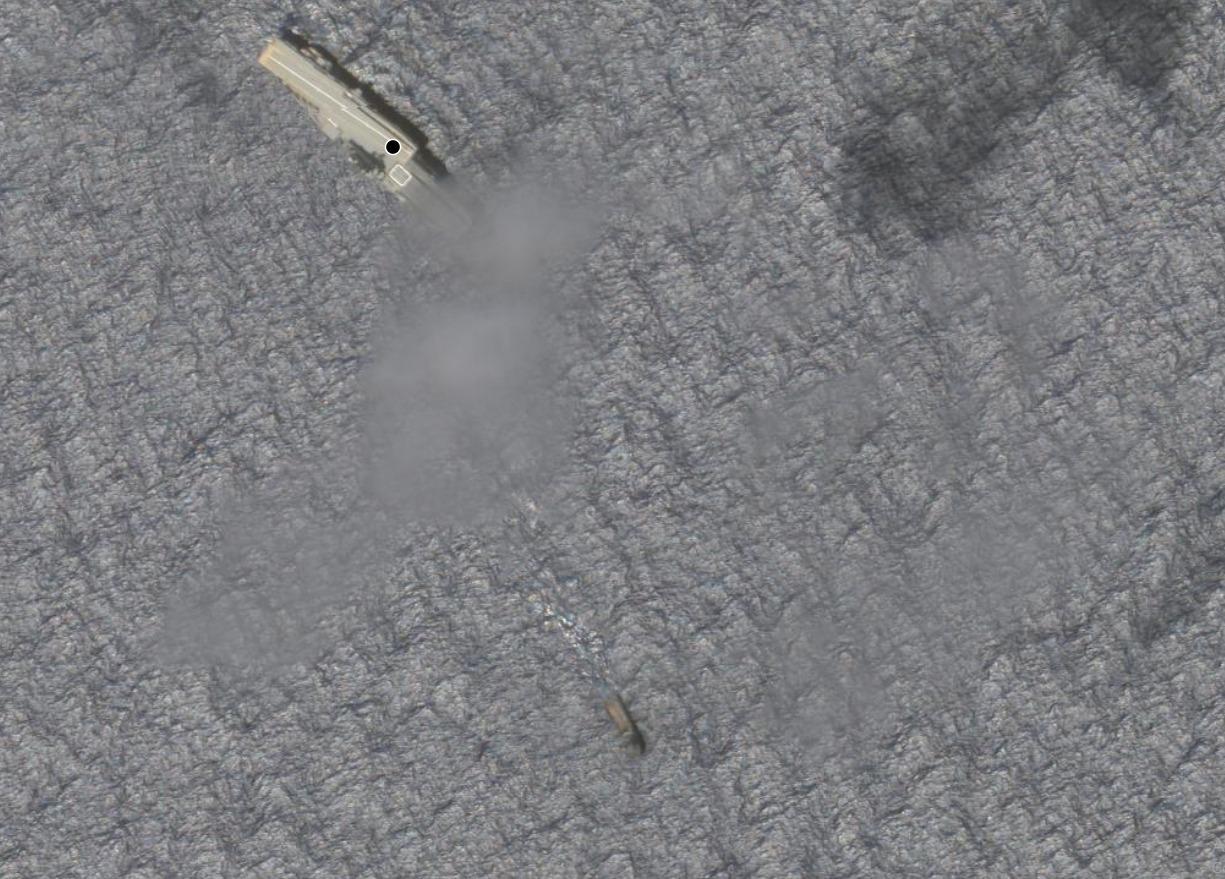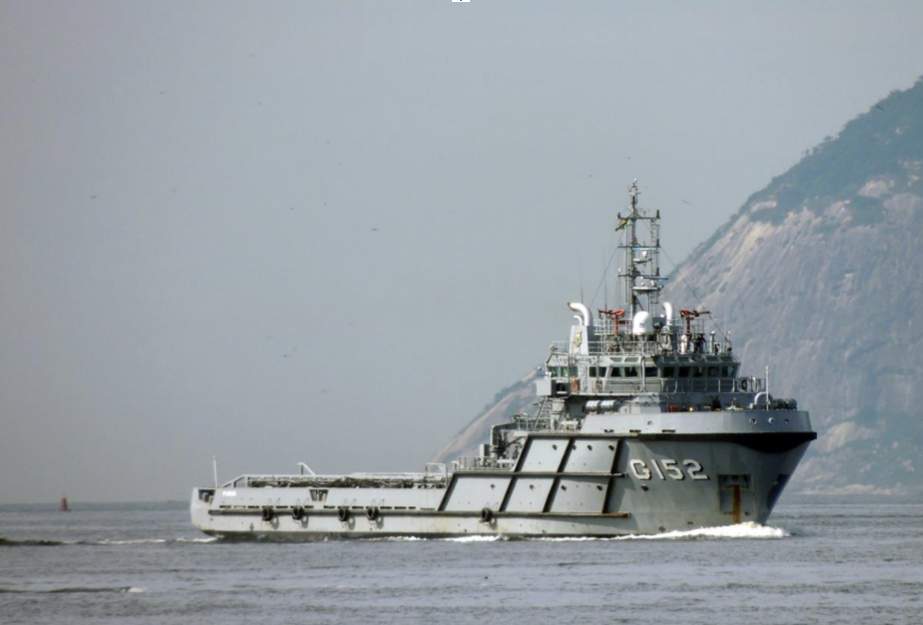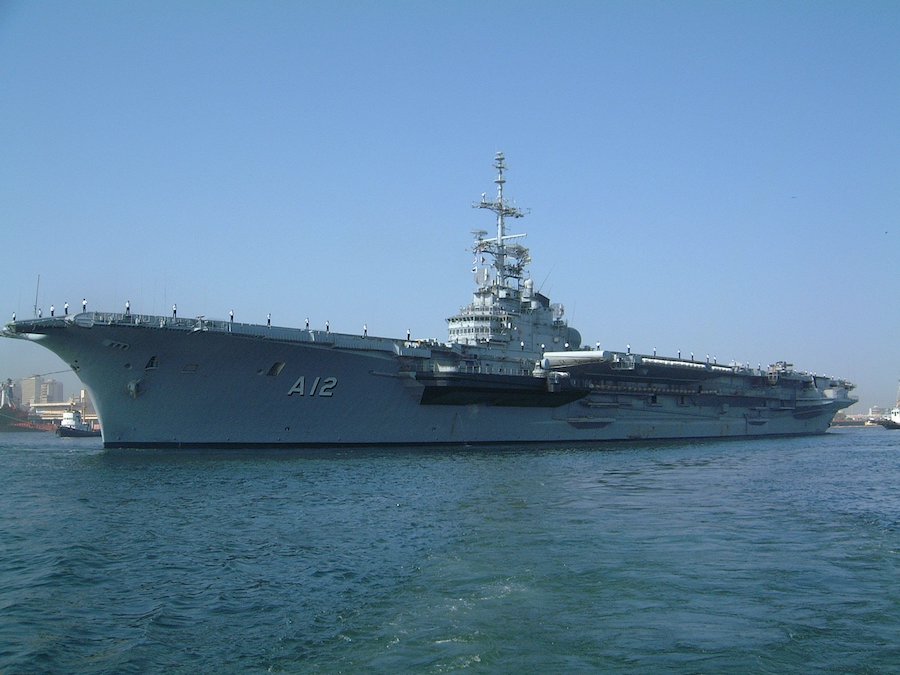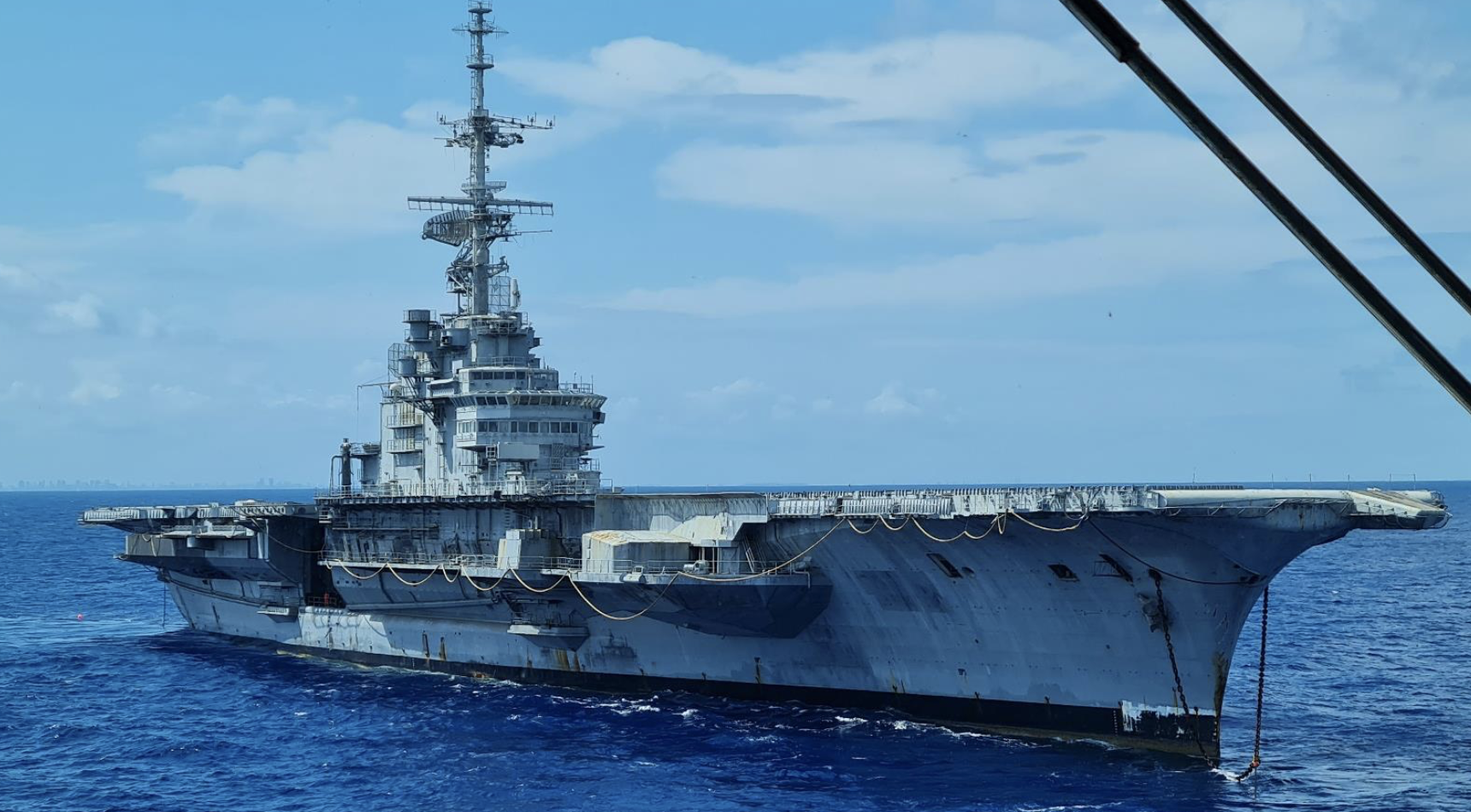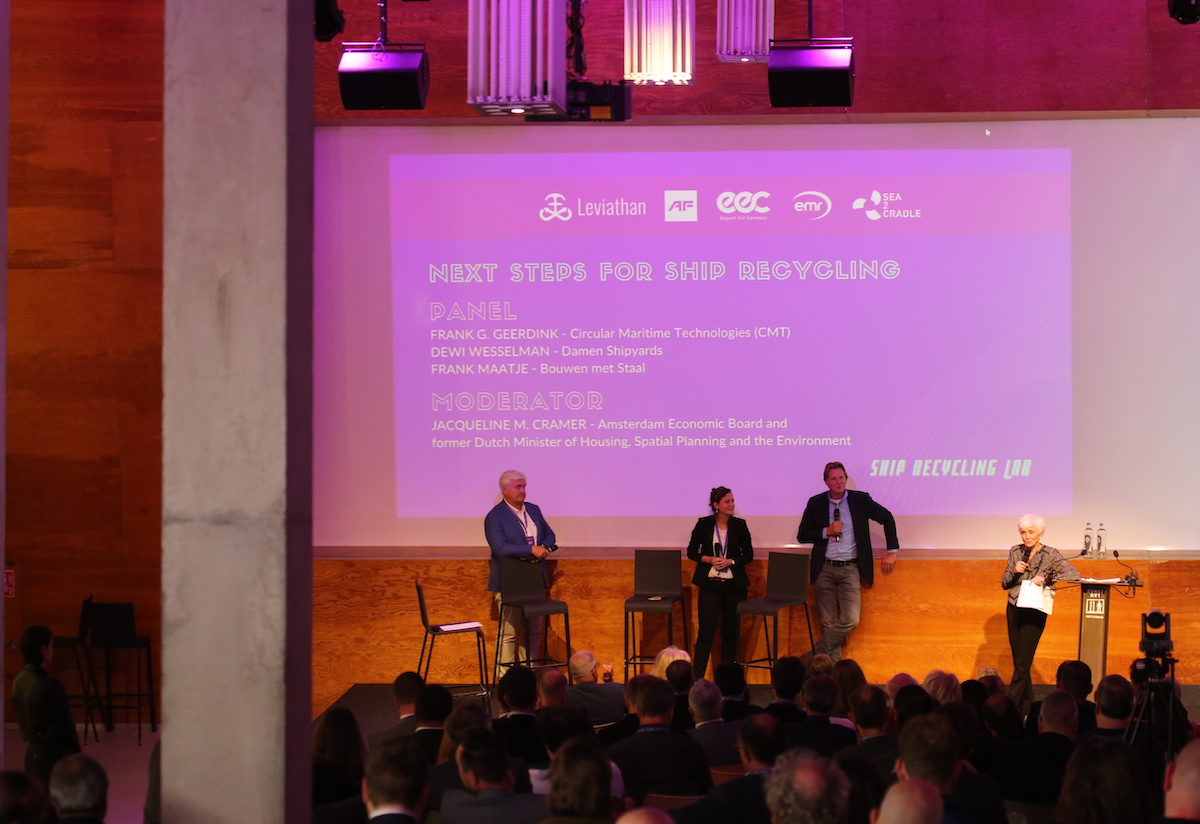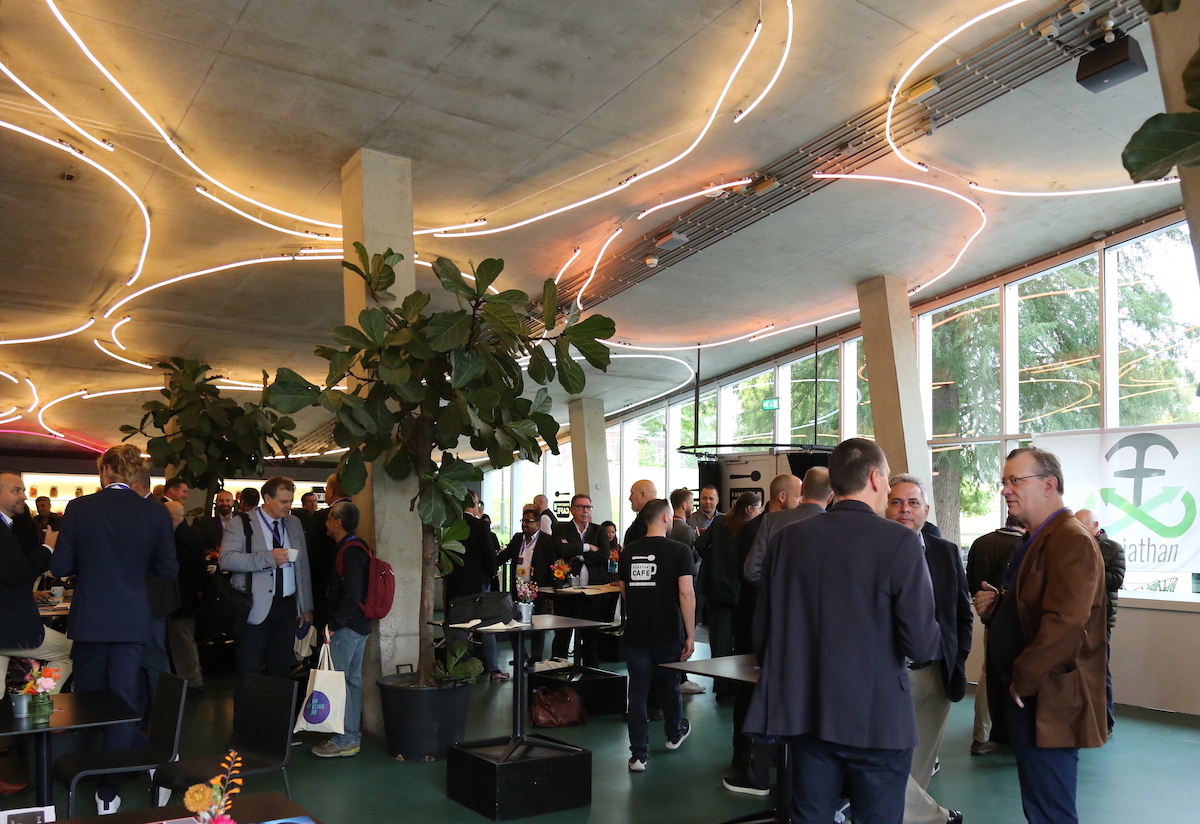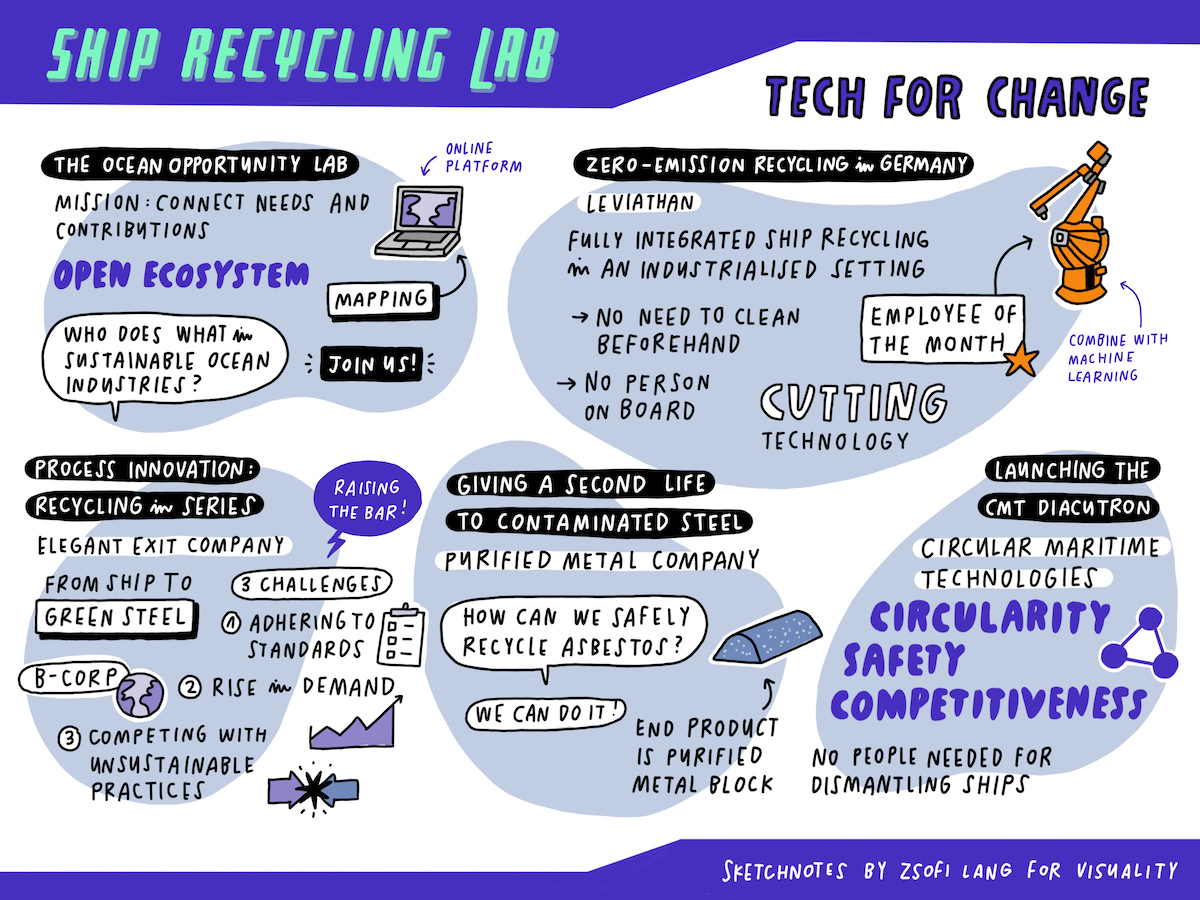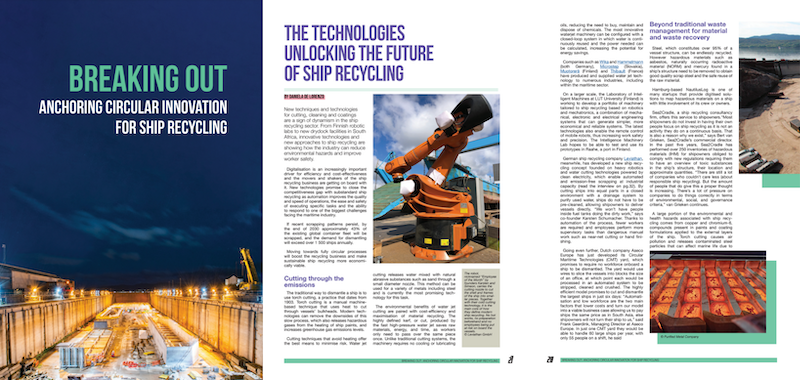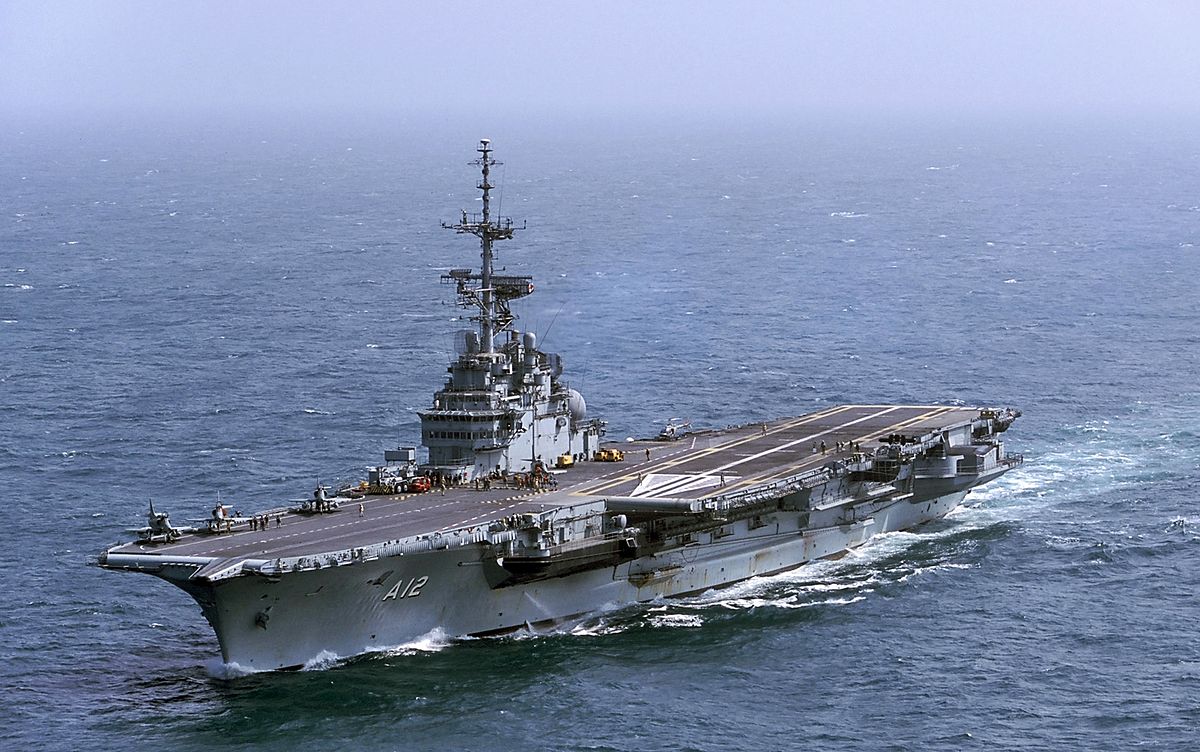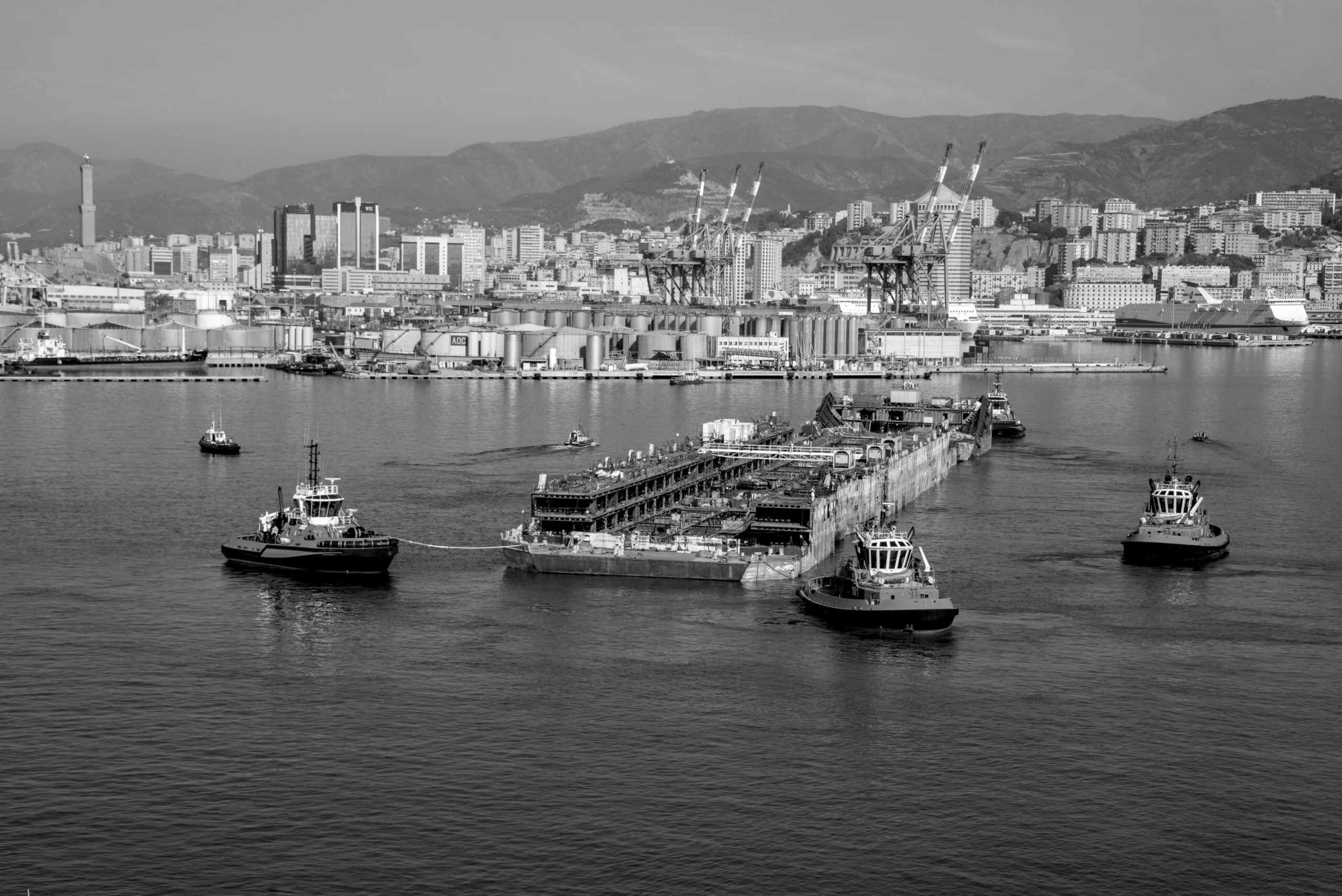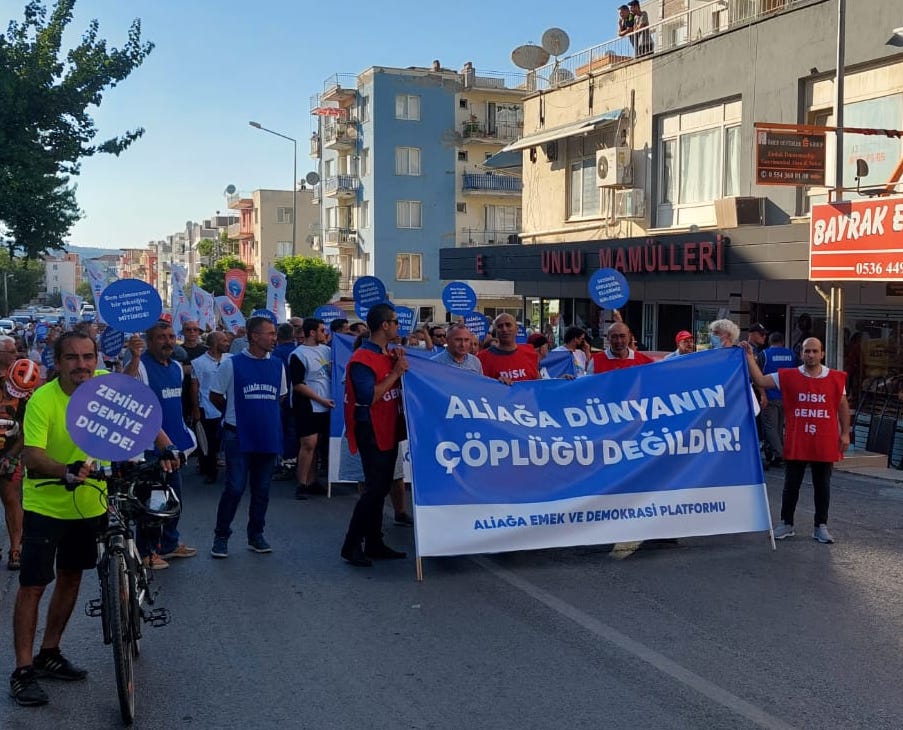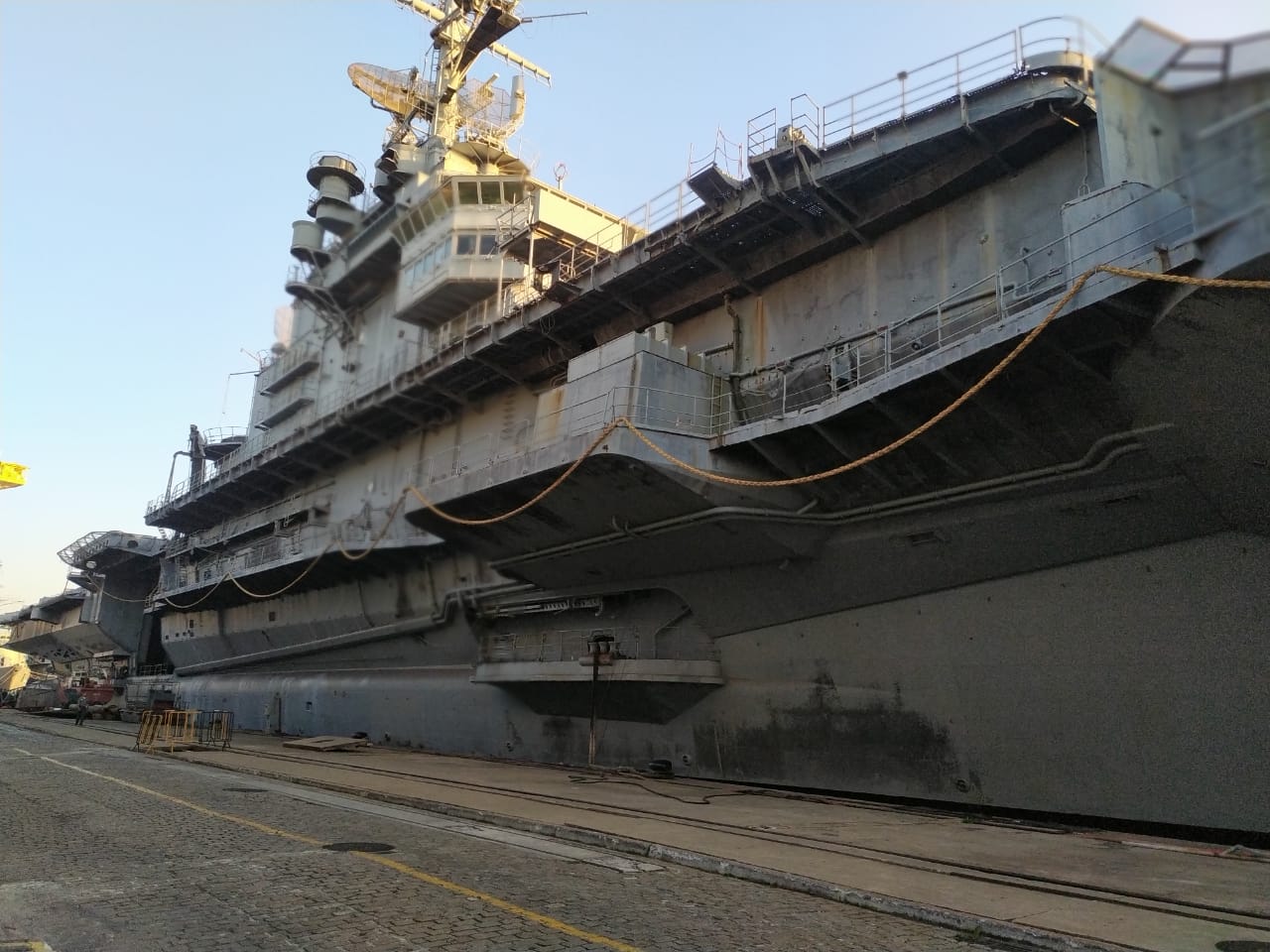Violation of three environmental treaties called absolutely unnecessary by NGOs
Last night, the Brazilian Navy, after months of refusing to allow its old aircraft carrier SÃO PAULO to safely return to a Naval base, detonated explosives placed on the vessel’s massive hull to send it to the bottom of the sea, claiming it was a danger to the Brazilian coastline due to its structural condition.
With the sinking of the ship went also several million dollars worth of recyclable steel and other metals, an estimated 760 tonnes of hazardous asbestos, more than 300 tonnes of material contaminated with highly toxic PCBs (polychlorinated biphenyls) and additional tonnage of heavy metal-laden paint, all of which will no doubt contaminate the marine ecosystem in the dumpsite area for years to come. Environmentalists who had been working to facilitate the legal and safe recycling of the vessel are horrified by the decision.

The NGOs consider the deliberate dumping an environmental tragedy as the heavy metals and the PCBs will continue to leach into the marine environment in the foreseeable future. The sister ship of the SÃO PAULO, the CLEMENCEAU, was found to contain several hundred tonnes of PCB-contaminated material on board when it was recycled in the UK years ago. PCBs are extremely toxic and persistent chemicals that have been banned for many years due to their propensity to cause harm to wildlife and contaminate the food chain after being ingested by fish and other marine animals.
It was 2022 when the NGO Shipbreaking Platform noticed numerous discrepancies and irregularities regarding the amounts of hazardous materials onboard in the paperwork prepared before the export of the SÃO PAULO to a recycling yard in Turkey. Brazilian authorities refused to make any corrections and, instead, released the vessel in August. As the ship was almost ready to enter the Mediterranean Sea, the Turkish government, however, agreed with the environmentalists and withdrew its consent to receive it until a more thorough assessment of the hazards onboard could be independently conducted. At that point, as per the Basel Convention on the Control of Transboundary Movements of Hazardous Wastes and their Disposal, Brazil recalled the ship presumably for safe management. Yet, when the SÃO PAULO returned, rather than being directed back to the Rio de Janeiro base from where it had departed, the Navy refused to allow it to dock there or at any other Naval base. Months passed with other states and commercial ports likewise refusing entry, as the owner begged for relief after towing the ship at sea for 3 months, burning fuel and money. On January 13, a survey was suddenly conducted showing water leaking into the vessel. The ship was given about 4 more weeks by the salvage master before it might no longer be safe to move it. Once again, the Navy refused to bring it to the dock for repair. Instead, on January 20, the Navy suddenly forced the convoy 200 miles further off-shore, announcing soon after the intention to sink the vessel. An attempt to obtain an injunction against the sinking failed. Now the SÃO PAULO has been sunk, still without explanation as to why the Navy never brought its old ship to base -- the obvious legal and logical solution.
What the Navy has done violated three international environmental treaties. First, failure to bring a ship returned from an aborted transboundary movement of waste back into the territory of the exporting State for safe management is a violation of the Basel Convention. Second, disposing of PCBs in the sea is a violation of the Stockholm Convention on Persistent Organic Pollutants. Third, dumping ships at sea without first cleaning them of toxic substances is a violation of the London Convention and Protocol.


